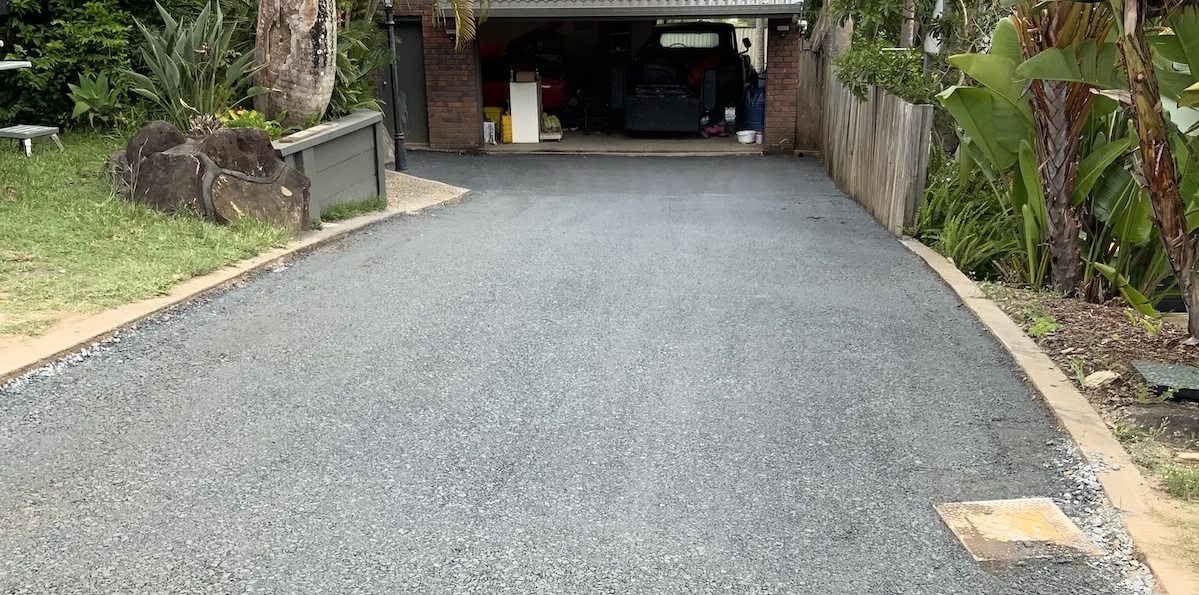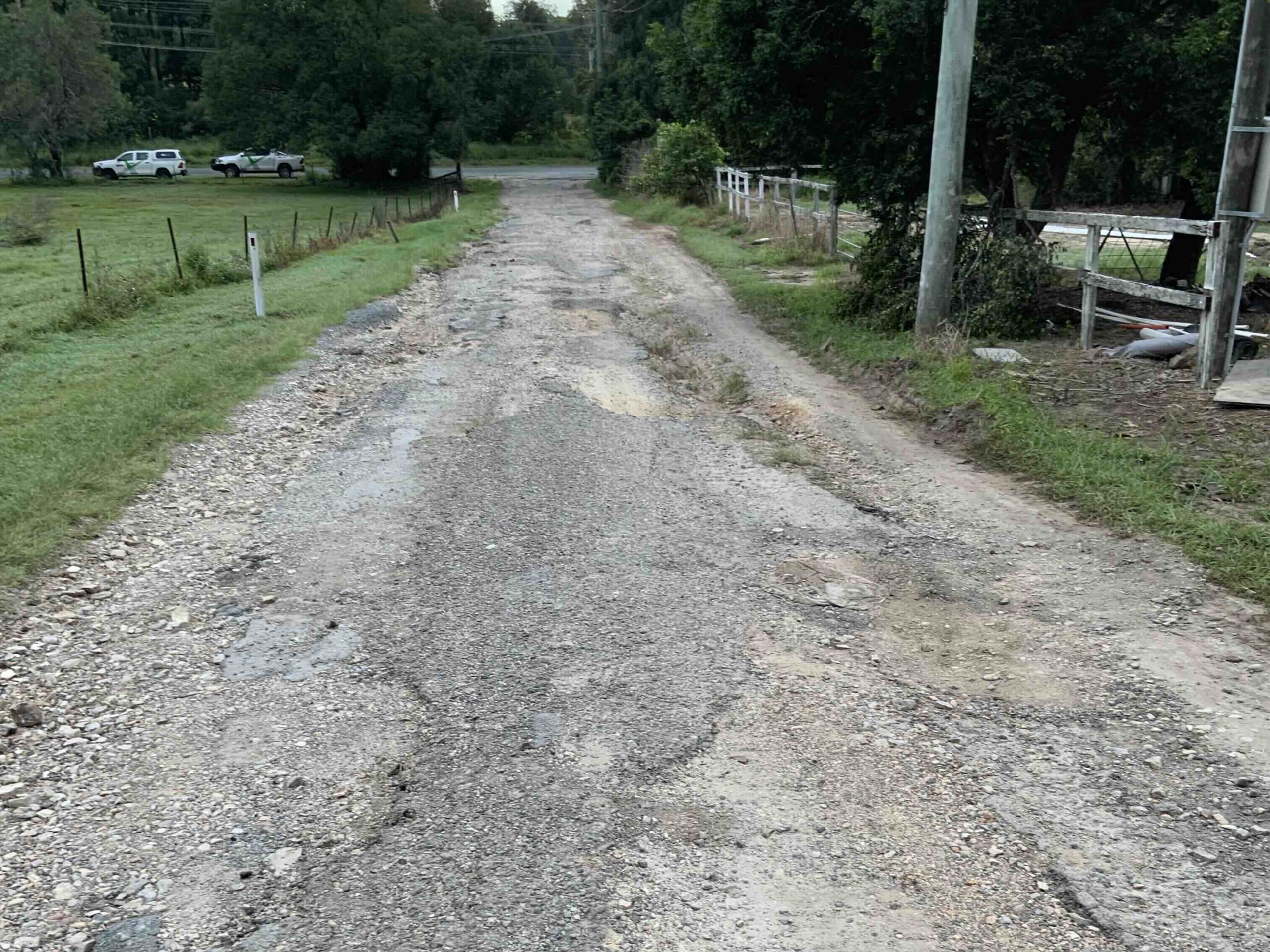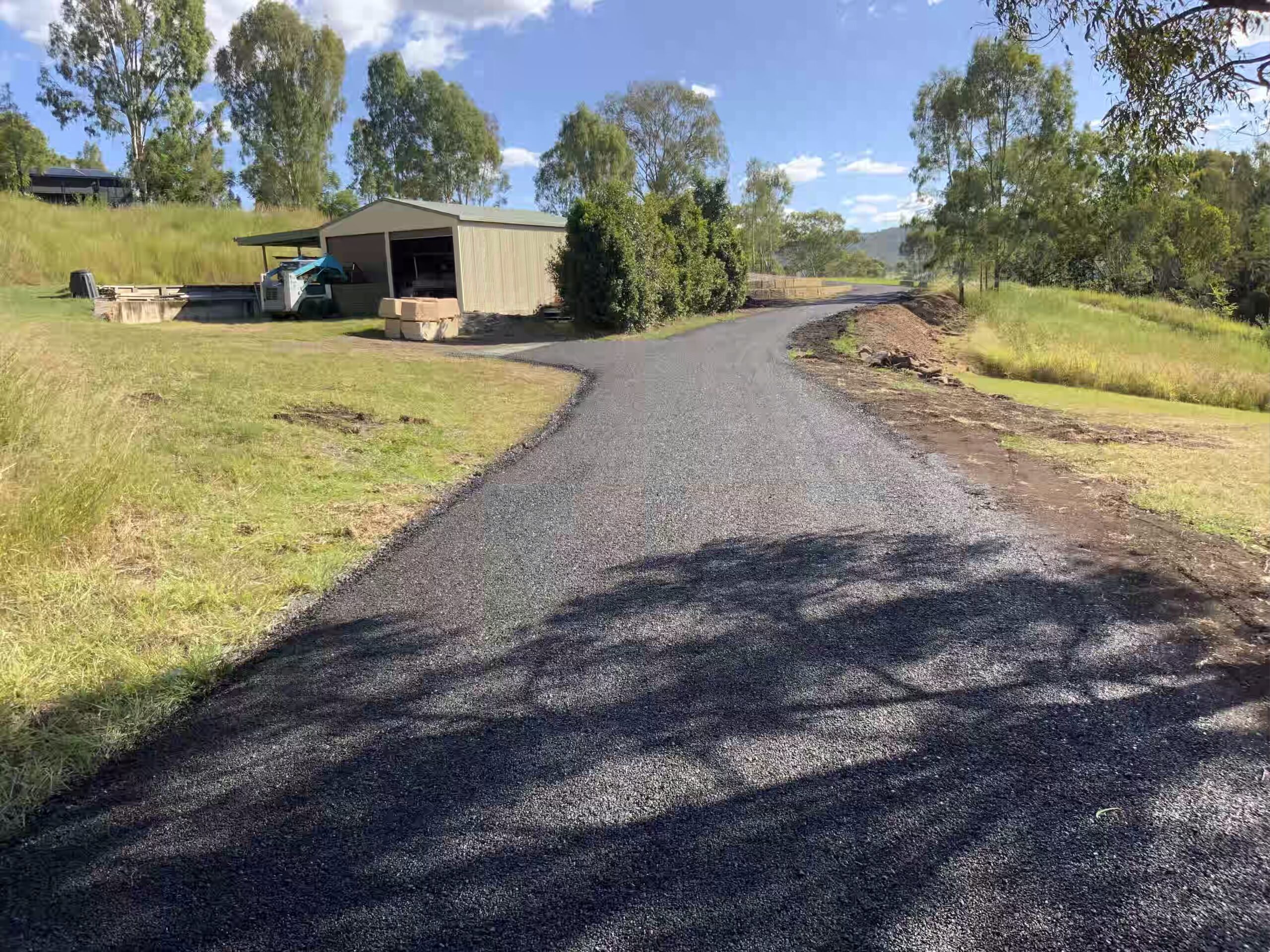The Foundation is Everything
At Spray Coat and Seal Driveways, we know that the true quality of a driveway starts well below the surface. While it’s tempting to focus on the final layer — whether it’s asphalt, or two coat bitumen spray seal — the foundation is what determines how long your driveway will last.
We often get asked: “Why is your quote higher than others?” The answer lies in the foundation. Unfortunately, some contractors skip or skimp on this step to offer cheaper prices. This blog aims to educate homeowners and property developers on what an acceptable road base looks like and why cutting corners leads to serious problems down the track.
The Problem: Poor Foundations = Early Failure
One of the biggest issues we face in the Gold Coast and SEQ region is the number of driveways failing prematurely due to inadequate road base preparation. These failures aren’t always obvious at first, but within 6–18 months, clients often see:
- Cracks appearing across the surface.
- Potholes forming after rain.
- Drainage problems with water pooling or running underneath the surface.
- Sections collapsing or sinking, especially where vehicle tyres travel most.
What’s worse is that many of these problems aren’t repairable with a simple patch — the whole structure must be pulled up and rebuilt, which costs significantly more than doing it properly from the start.
What Is an Acceptable Road Base Foundation?
A high-quality road base foundation isn’t just about dumping some gravel and rolling it. It’s a step-by-step process that ensures your driveway will remain stable for decades.
The proper process includes:
- Site Excavation
- Remove all organic topsoil, grass, clay, and fill.
- Depth should typically range from 140mm to 200mm, depending on soil conditions and load requirements.
- Subgrade Preparation
- Compact the native ground with a plate compactor or roller to achieve a stable base.
- Apply a geo-fabric membrane in soft soil areas to prevent mixing of subgrade and base.
- Layering of Road Base Material
- Install Type 2.1 or 2.3 road base, which includes a mix of crushed rock, dust, and fines to lock together.
- Thickness of base layer is usually 120mm–160mm, compacted in two passes for best results.
- Moisture Conditioning
- Lightly water the road base to bring it to optimal moisture content before compaction.
- Dry or over-wet material leads to poor compaction.
- Compaction
- Use a vibrating roller (2–3 tonne minimum) to compact the base until a tight, uniform finish is achieved.
- Clegg hammer or nuclear density testing can be used to confirm compaction levels.
- Final Trim and Grading
- Shape the surface to allow for proper drainage, with a slight cross-fall or crown.
- Apply crusher dust as a skim coat for levelling, if required.
This base becomes the solid, locked-in platform that supports your bitumen or asphalt top coat — just like concrete relies on compacted gravel underneath.
Recommended Materials for Gold Coast Conditions
Different regions have different soil conditions, but here’s what we’ve found works best in SE Queensland:
- Type 2.1 Road Base: Crushed basalt or blue metal, well-graded with a blend of fines.
- Type 2.3 Road Base: More economical, still suitable if compacted correctly.
- Geo-Fabric: Recommended for areas with clay or water-affected soils to provide extra structure.
We Only Source from Trusted, Certified Suppliers:
We never compromise on material quality. All our road base supplies are sourced from long-standing, reputable providers who meet QLD Main Roads specifications:
- Boral – Industry leader with consistent material quality and reliable supply.
- NuCrush Group – Locally owned and operated on the Gold Coast, with a strong focus on roadbase, aggregates, and environmental responsibility.
- Nielsen’s – Known for high-quality materials and bulk road base products across SEQ.
We do not use recycled concrete rubble, fill sand, or second-rate materials — no matter how cheap they are. These inferior products are often the cause of premature failure.
Why Cheap Jobs Fail (and Cost You More)
Here’s a breakdown of what happens when a contractor cuts costs:
| Corner Cut | Short-Term Result | Long-Term Consequence |
|---|---|---|
| No excavation | Flat surface quickly | Driveway cracks, settles unevenly |
| Low-grade fill | Looks good temporarily | Material shifts under weight |
| No compaction | Saves time | Surface flexes, potholes appear |
| No drainage design | Less labour | Water undermines foundation |
Long-Term Value: Invest Once, Not Twice
A solid foundation:
- Extends your driveway’s life to 10–20 years, instead of 2–5.
- Minimises cracking, potholes, and resurfacing costs.
- Handles heavy vehicles and machinery without rutting or collapse.
- Improves property value and makes resale easier.
Most importantly, it gives you peace of mind. You won’t be calling us (or anyone else) back for major repairs in 18 months.
Visual Examples: Good vs Bad
Suitable Road Base:
- Compact, level surface
- Moisture-treated before compaction
- Visible blend of coarse and fine material
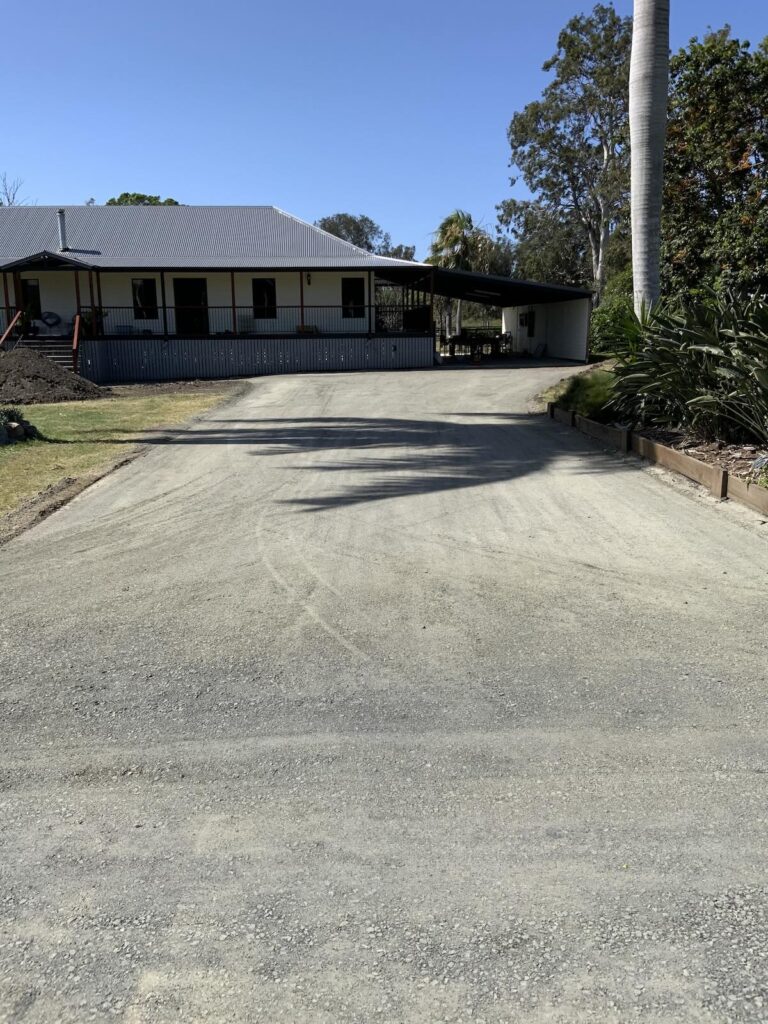
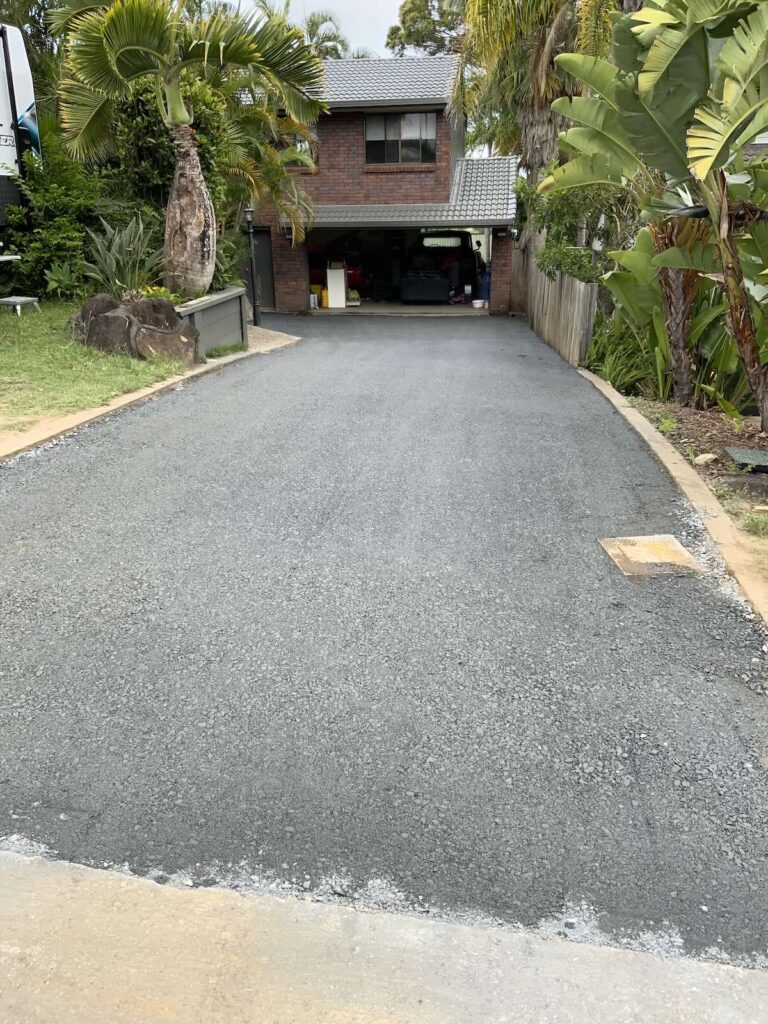
Unacceptable Road Base:
- Loose or sandy surface
- No defined edges or grading
- Cheap rubble or ungraded fill
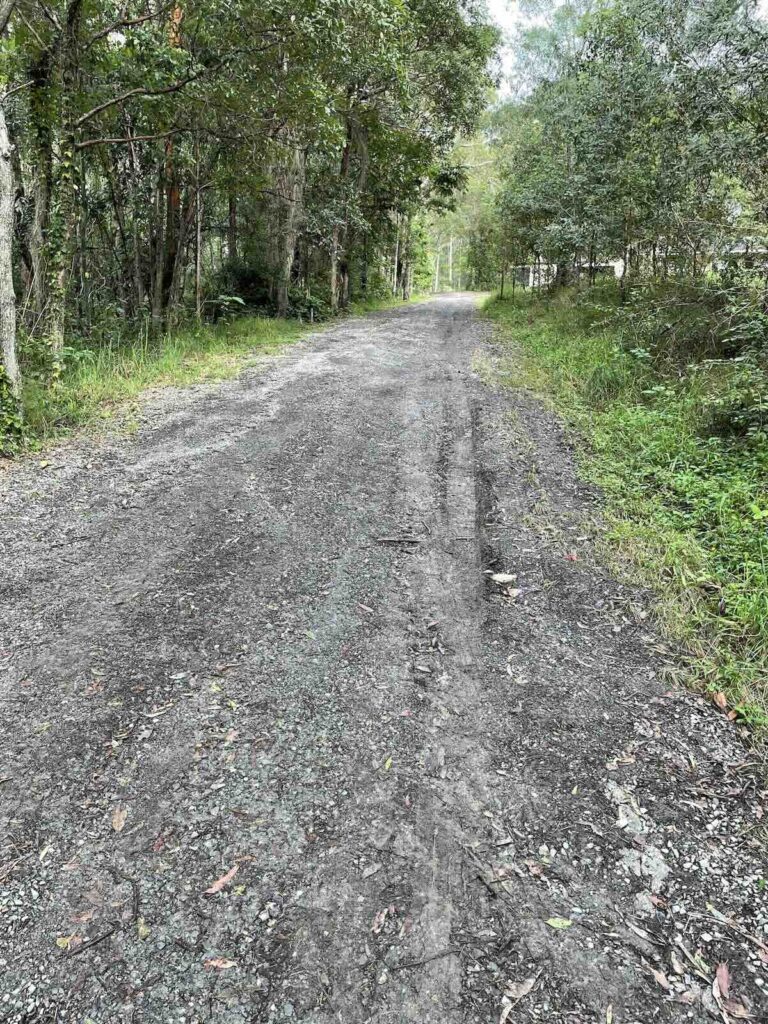
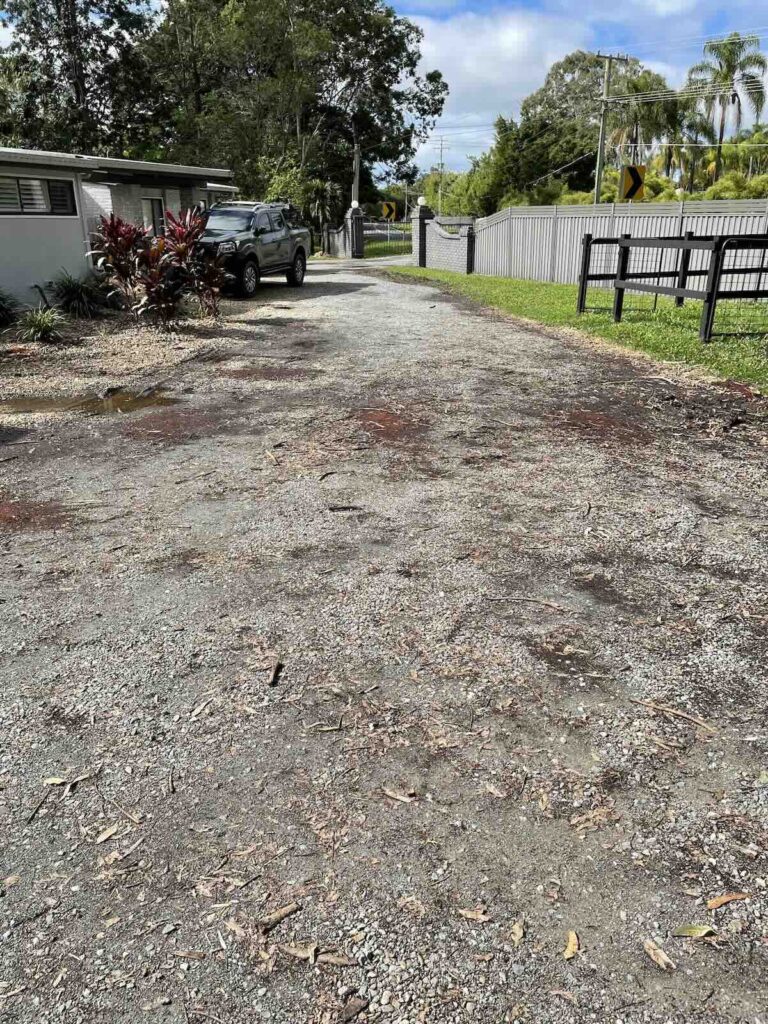
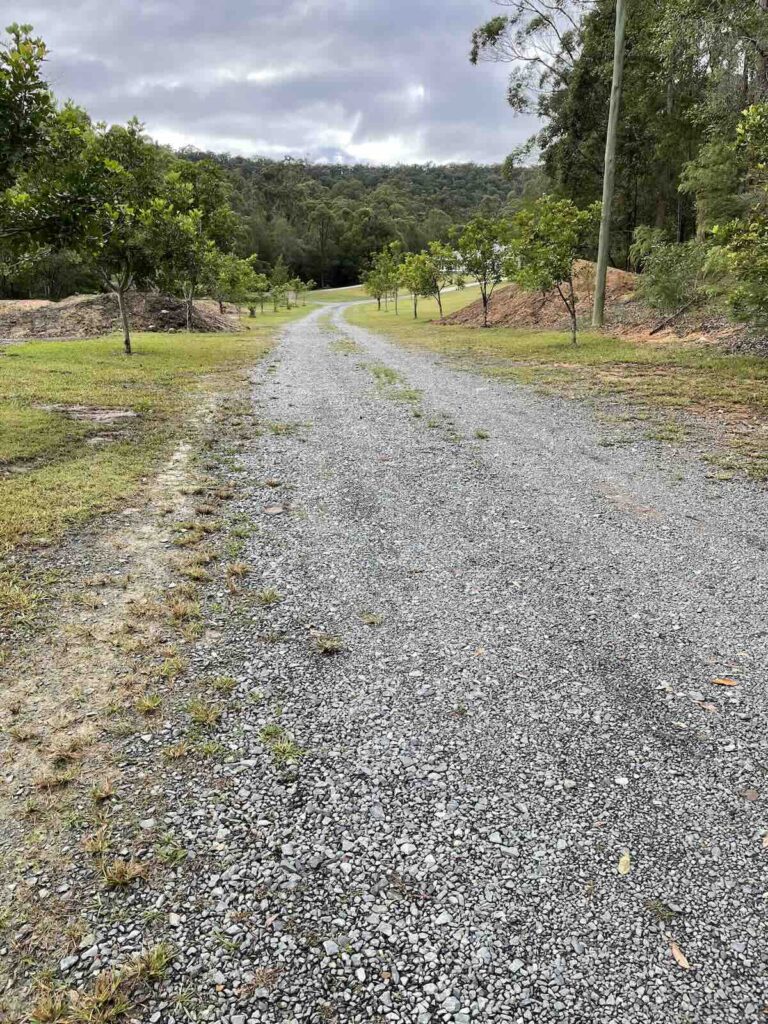
How We Guarantee Quality Foundations
Every driveway project we quote includes:
- Full site inspection and soil assessment
- Proper excavation depth based on load and usage
- Quality road base material from certified suppliers
- Mechanical compaction with the correct equipment
- Grading for water runoff
We never take shortcuts. We build to last.
Final Word: Ask What’s Underneath
Before you accept any quote, take a moment to dig deeper — literally. A beautifully surfaced driveway means nothing if what’s underneath isn’t done right. It’s easy to be swayed by a cheaper price, but in this industry, shortcuts are costly in the long run.
When you know what to look for, you’ll quickly see the difference between a job that lasts and one that won’t make it through the next storm season.
So before you sign off, be sure to ask:
- What base material is included?
- How deep will you excavate?
- Will the base be compacted properly?
- Is drainage factored in?
At Spray Coat and Seal, we’re always happy to walk you through our process — because we’ve got nothing to hide and everything to stand on.
Do it once. Do it right. Build from the ground up.
